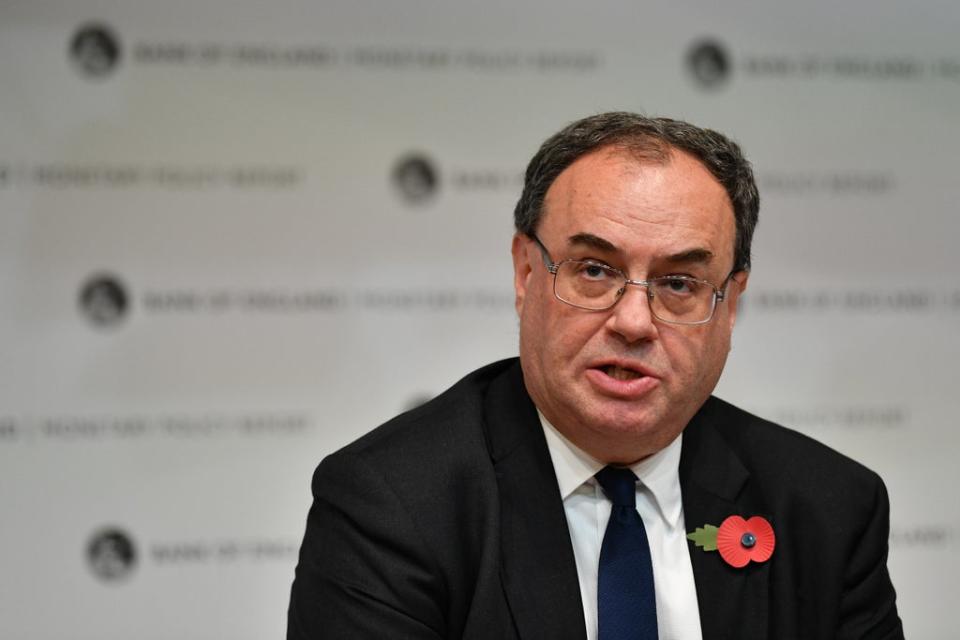Inflation preview: price surge puts fresh pressure on Bank of England

What will inflation come in at tomorrow?
The City thinks it will have risen from 3.1% in September to 4% in October. That’s double the 2% target the Bank of England is supposed to hit. The Governor Andrew Bailey will have to write a letter to Chancellor Rishi Sunak explaining himself. Sunak will reply saying he agrees with Bailey’s expectation that inflation will stop rising soon enough. That’s the protocol.
How high could it go?
That’s the big question. To 5% by April says Capital Economics as energy prices rise over the winter. Restaurant and pub prices are also on the up, leading to much talk of a cost-of-living squeeze hitting already hard-pressed family finances. In September the CBI reported that employers are planning more pay rises than for years, rises that are at least in line with inflation. That should help wage earners, though higher wages themselves could be a cause of inflation.
Is the Bank of England under pressure?
Somewhat. It irked at least half the City two weeks ago when it held interest rates at 0.1% rather than putting them up as many expected. The hawks in the Square Mile will see rising inflation as a sign that the Bank has got it wrong, and that it needs to raise borrowing costs right quick.
The Bank still thinks inflation will pass. Capital Economics agrees, saying in a note to clients: “The story for the next six months or so is going to be one of rapidly rising inflation. But we still think the chapter after that will be all about rapidly falling inflation.”
Not everyone is so sure.
What else is rising in price?
Used cars. Global car makers can’t get enough microchips to build new cars fast enough, hence a surge in the cost of old ones. With petrol also getting more expensive, life is tough for the great British motorist.
What else is going on?
Well, jobs figures today showed vacancies at a record high as employers struggle with staff shortages. That should lead to higher starting wages for new jobs, which is good, but, some fret, bad for inflation.
According to the ONS there were 1.17 million job openings in October, 400,000 higher than before Covid came along.
So we’ll be ok?
Most likely, yes. Let’s assume the Bank of England is right since it has more information than anyone else. So inflation dips later next year, GDP keeps rising, borrowing costs are still low, businesses can keep expanding, and we get through the worst (we assume) crisis of our lifetimes.
You sound optimistic.
It’s not usual.
Read More
Heavy metal takes a hit as markets eye inflation
FTSE 100 Live: AstraZeneca sees Covid jab profit, shares slide
The gloom is overdone: reasons to be cheerful about the economy

 Yahoo Finance
Yahoo Finance 